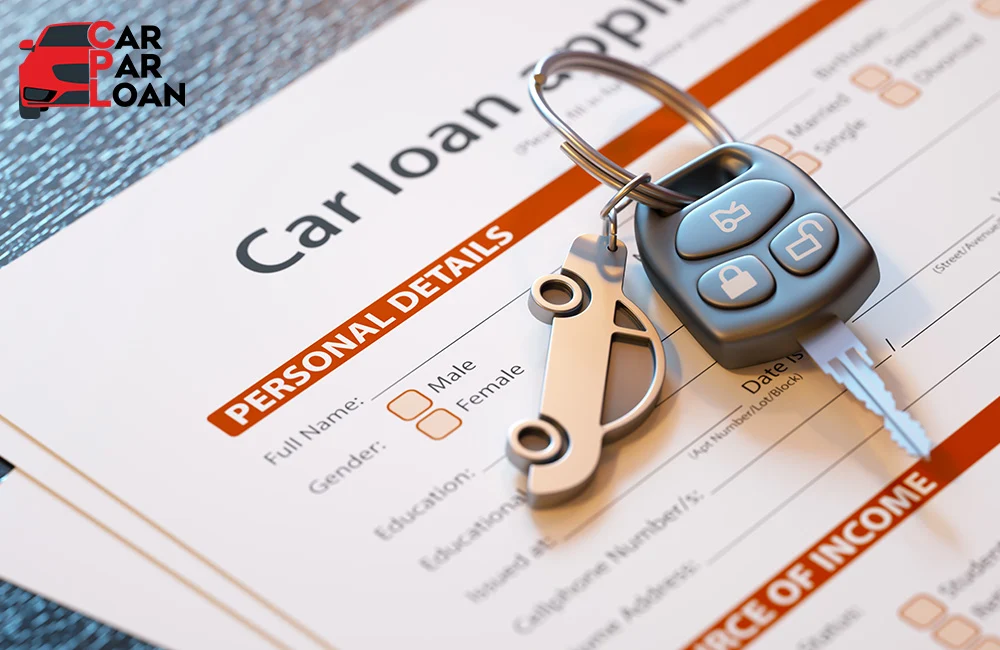What are Different Types of Car Loans & Eligibility Criteria
Are you planning to buy a car soon and embark on new adventures with greater freedom? That sounds exciting! But have you thought about financing your dream car yet? With so many car loan options available, it can be overwhelming to figure out the best fit for you. Don't worry; we've got you covered. In this article, we will explore different car loan types and the car loan eligibility criteria to help you make an informed decision. So, buckle up, and let's get started!
Types of Car Loans
There are three main categories of car loans, each with its characteristics:
Secured Car Loans
These loans require you to pledge collateral, typically the car itself, to secure the loan. If you default on the loan, the lender can repossess the car. Secured car loans typically offer lower interest rates than unsecured loans. Here are two common types of secured car loans:
- New Car Loan: They are designed specifically for financing the purchase of a new car from a dealership.
- Used Car Loan: Used for financing the purchase of a pre-owned car from a dealership or private seller.
Unsecured Car Loans
Unlike secured loans, unsecured car loans don't require collateral. This can be attractive if your car is older or has a low value. However, unsecured car loans typically come with higher interest rates due to the increased risk for the lender. An example of an unsecured car loan is a:
- Personal Loan: A multi-purpose loan that can be used for various purposes, including financing a car purchase.
Car Loan Eligibility Criteria
Lenders have specific criteria to determine your car loan eligibility. These criteria generally involve the following factors:
Credit Score
Your credit score is a three-digit number representing your creditworthiness and indicating your ability to repay debt. A higher credit score usually qualifies you for a lower interest rate.
Debt-to-Income Ratio (DTI)
This ratio compares your total monthly debt obligations to your gross monthly income, indicating your ability to manage loan repayments.
Employment Status
Lenders prefer borrowers with stable employment and a demonstrably consistent income.
Loan-to-Value Ratio (LTV) for Secured Loans
This ratio compares the loan amount to the car's value. A lower LTV (meaning you're borrowing less than the car's value) makes the loan less risky for the lender.
Down Payment
A down payment is a portion of the car's purchase price that you pay upfront. A larger down payment reduces the loan amount you need to borrow and can improve your loan terms.
Additional Considerations for Car Loan Eligibility Criteria
Loan Term
The loan term refers to the duration of the loan, typically ranging from 24 to 84 months. A shorter term translates to higher monthly payments but lower overall interest costs. Conversely, a longer-term translates to lower monthly payments but higher total interest paid.
Interest Rate
The interest rate is the cost of borrowing money expressed as a percentage of the loan amount. Lower interest rates result in lower overall loan costs.
Applying for a Car Loan
You can apply for a car loan directly with a bank, credit union, online lender, or dealership financing department. The application process typically involves submitting documents that verify your income, employment, and credit history.
CarParLoan Can Help
CarParLoan is a valuable resource for individuals seeking car loans. We partner with various lenders to offer various car loan options, including loans against your existing car. Through our user-friendly platform, you can easily check your car loan eligibility for a loan and get matched with suitable loan offers.
Ready to Get Started? Visit CarParLoan today to explore your car loan options and find the perfect financing solution to drive away in your dream car!
FAQs:
Q: Which type of car loan is right for me?
A: The best car loan for you depends on your circumstances. Consider your credit score, financial situation, and desired loan terms.
Q: How can I improve my chances of getting approved for a car loan?
A: Maintaining a good credit score, reducing your DTI ratio, and saving for a down payment can all strengthen your loan application.
Q: What documents do I need to apply car loan online?
A: Documents typically required include proof of income, employment verification, proof of address, and a valid ID.
Q: Can I apply car loan online?
A: Yes, many lenders allow you to apply car loan online. CarParLoan offers a convenient online platform to explore loan options and get pre-approved.
We hope this comprehensive guide has empowered you to navigate the world of car loans with confidence. Remember, informed decision-making is crucial in securing the most suitable financing option for your car purchase.
Get a Head Start!
- Check your credit score: Knowing your credit score is crucial. Many banks and credit unions offer free credit score reports.
- Improve your credit score if needed: There are steps you can take to improve your credit score, such as paying bills on time, reducing your credit utilization ratio, and addressing any errors on your credit report.
- Shop around for loan offers: Don't settle for the first loan offer you receive. Compare rates and terms from multiple lenders to find the most favorable option. CarParLoan can simplify this process by connecting you with various lenders and presenting pre-approved loan offers.
Let's Talk! Have questions or need help finding the right car loan? CarParLoan is here to assist you! Feel free to contact us through our website or social media channels. We're dedicated to helping you navigate the car loan process and drive away happy!
Share Your Experience! Have you recently financed a car purchase? If so, what tips would you offer others considering a car loan? Leave a comment below and share your experience with the CarParLoan community!



.png)
Comments
Post a Comment